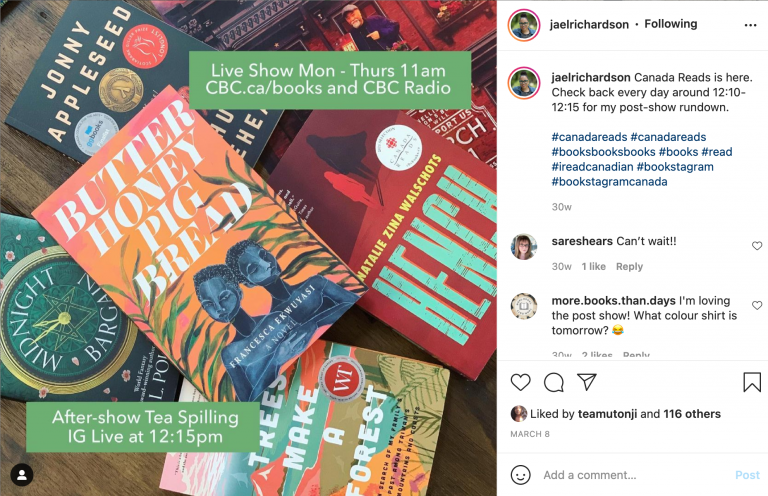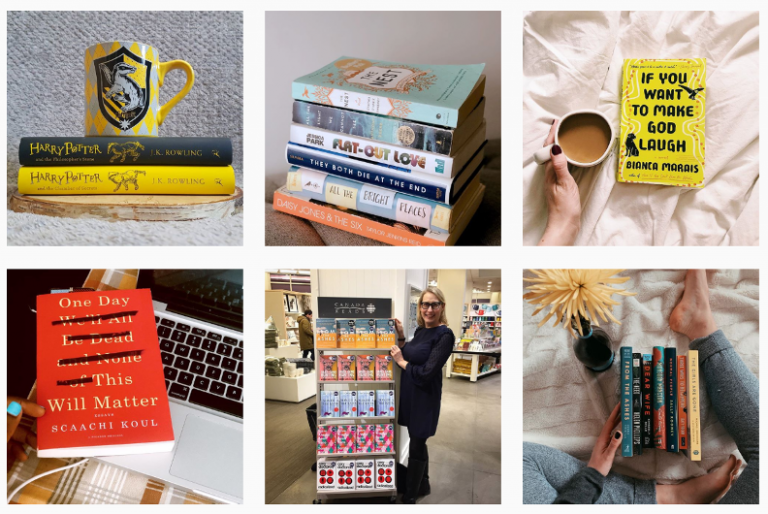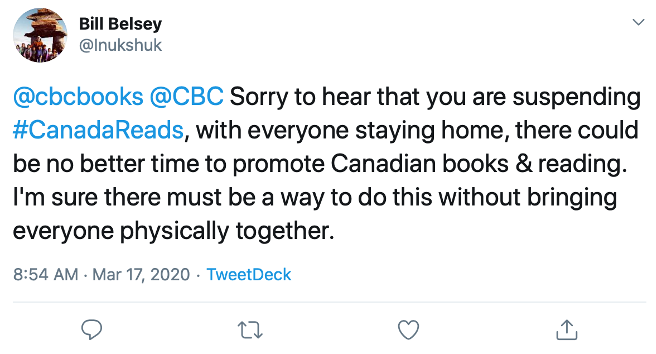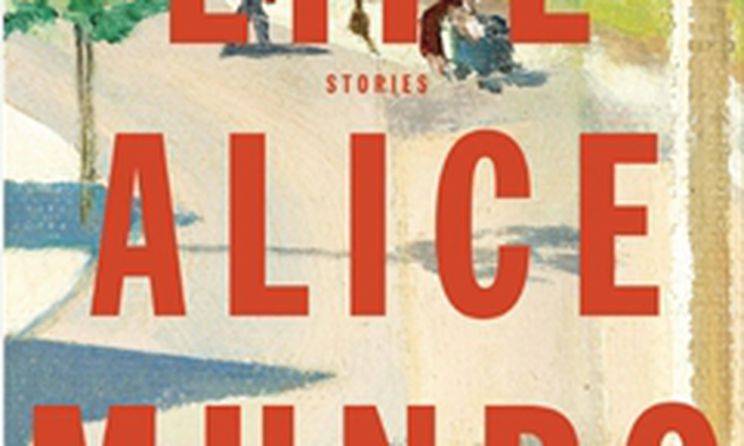On 2 March 2021, the Canada Reads 2021 authors and panellists joined host Ali Hassan in a virtual conversation in advance of the competition.
Canada Reads 2021 authors and panellists in conversation
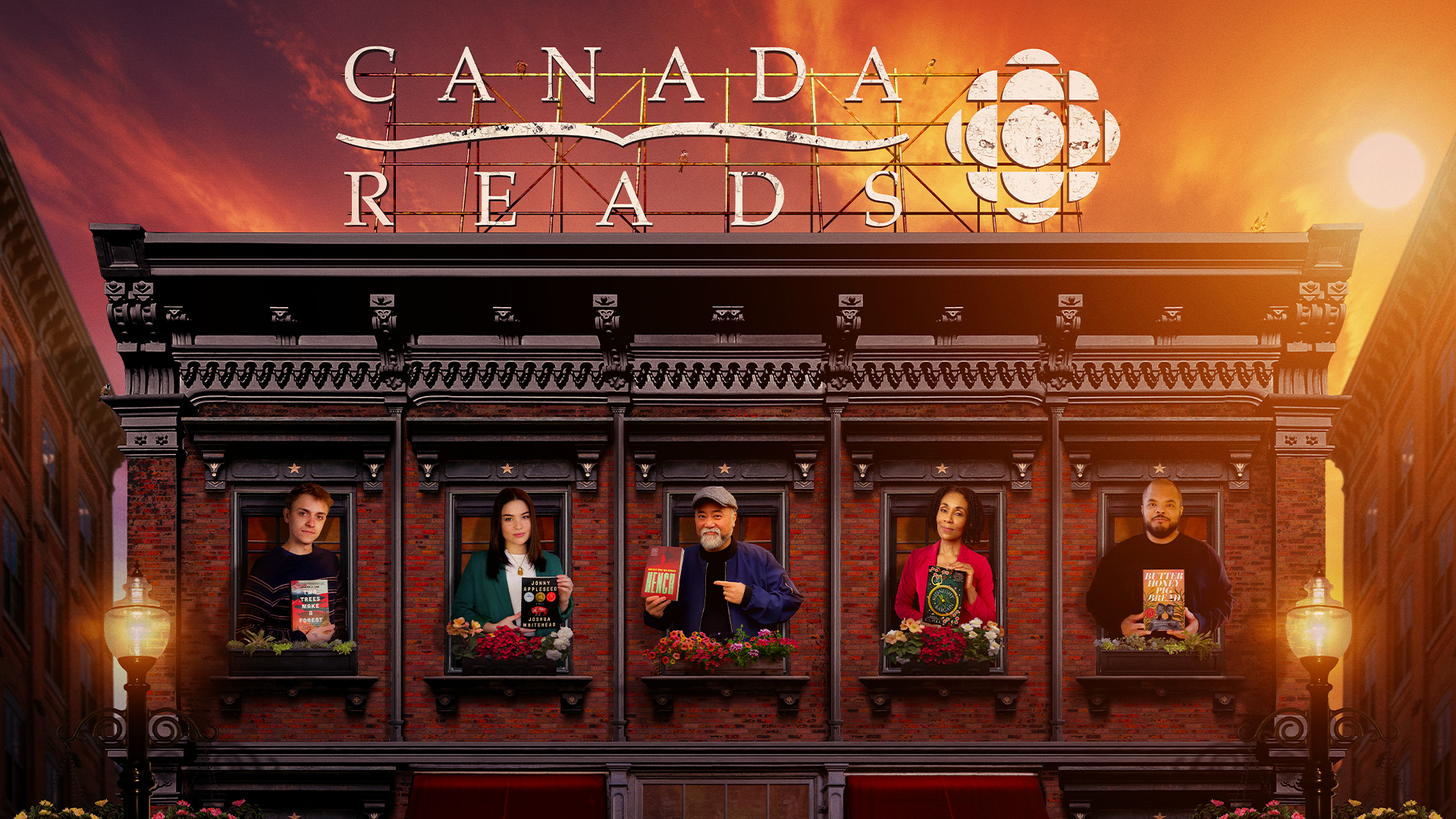
In the virtual event, presented by Indigo and broadcast over Crowdcast, Ali spent about ten minutes with each panellist/author pair, asking questions about the books and upcoming Canada Reads debates. He spoke with:
• Scott Helman championing Jessica J. Lee’s Two Trees Make a Forest
• Rosey Edeh championing C.L. Polk’s The Midnight Bargain
• Devery Jacobs championing Joshua Whitehead’s Jonny Appleseed
• Paul Sun-Hyung Lee championing Natalie Zina Walschots’ Hench
• Roger Mooking championing Francesca Ekwuyasi’s Butter Honey Pig Bread
At the bottom of the screen, there was a green box advertising the book currently being discussed; if clicked, the audience member would be taken to Indigo’s website to purchase the book. Indigo has previously hosted in-person Canada Reads launch events, although not in all years—in some, the launch has taken place in another venue, such as at the Toronto Public Library, with copies of the books sold by another bookseller.
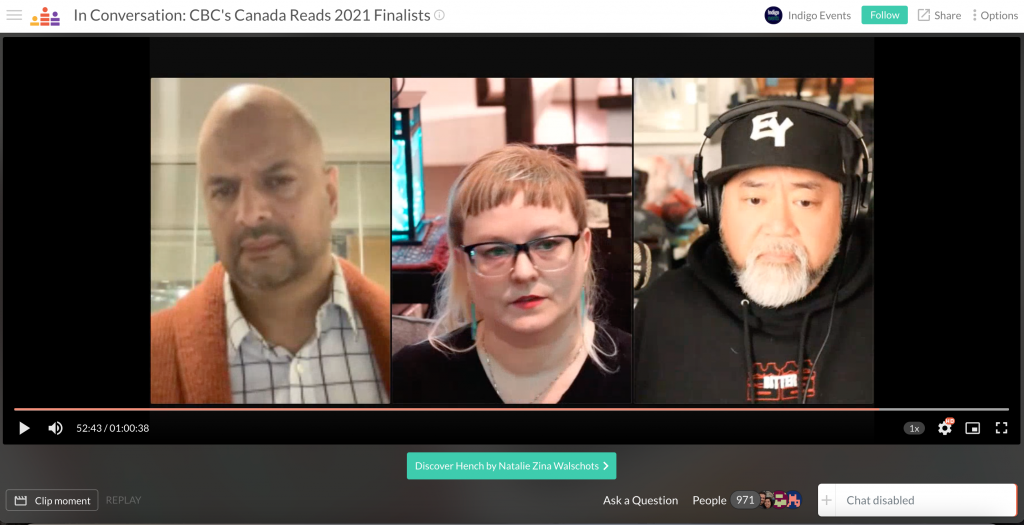
Audience members were able to post questions through the “Ask a Question” functionality in Crowdcast and could “upvote” questions posed by other audience members. 971 audience members attended the event. There were twenty-seven questions published through the “Ask a Question” feature—there were more questions submitted but some were removed by moderators, presumably duplicate questions or questions that were off topic.
The most “upvoted” questions of the night were questions directed to the authors about choices they made when writing their books—and the top three were all directed at Natalie Zina Walschots. Audience member Carolyn asked why Natalie chose to centre the experience of disability in Hench, Sarah Shears asked about the decision not to include a love story, and Susan Andrighetti asked about the spelling of the heroine’s last name. Together, these questions suggest a high degree of reader engagement with the texts: attentiveness to detail, nuanced queries about plot, and so on.
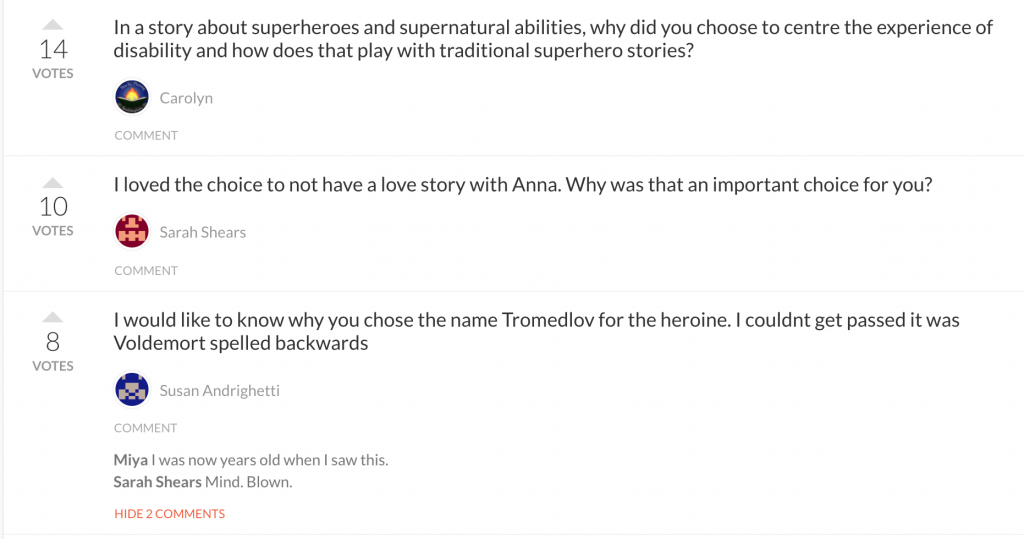
The majority of questions revolved around the books, with questions the plot lines and decisions authors made in their writing process. For example, Shimmi Kelly asked Natalie and Francesca Ekwuyasi about key decisions in their writing.


Similarly, Ericka Wicks asked Francesca if she was particularly fond of one of the women in her novel, and Daniel asked about where Natalie drew inspiration for her novel.


Author Jessica J. Lee responded to several questions directed to her, creating more of a two-way dialogue with audience members. Jessica was the only author to respond to questions in the “Ask a Question” feature following her ten-minute discussion with Ali.

One question asked Jessica about navigating the theme of Alzheimer’s in the book.

Two questions were asked about Taiwanese-Canadian audiences and how Jessica approached her family about the book.


Several audience members asked the authors about sequels—a question that implies reader engagement.




Interestingly, audience member David Lightfoot also took this opportunity to promote his own project while asking Natalie about a potential sequel—something we have also seen when audience members interact with Canada Reads on Twitter, as some post links to their own books or blogs alongside contributing to the conversation.
Some “questions” were actually comments on the Canada Reads programming or the event. For example, Pat Coroy asked about the process for choosing books for Canada Reads, demonstrating that, for some audience members, the broadcast is as interesting as the books being discussed.

Patti Hamilton wrote a thank you to Canada Reads for making writing fun, and Shirley commented “Fantastic evening!!!!! Thanks everyone!” at the end of the event. In both of these cases, Indigo Events thanked the audience members for participating.
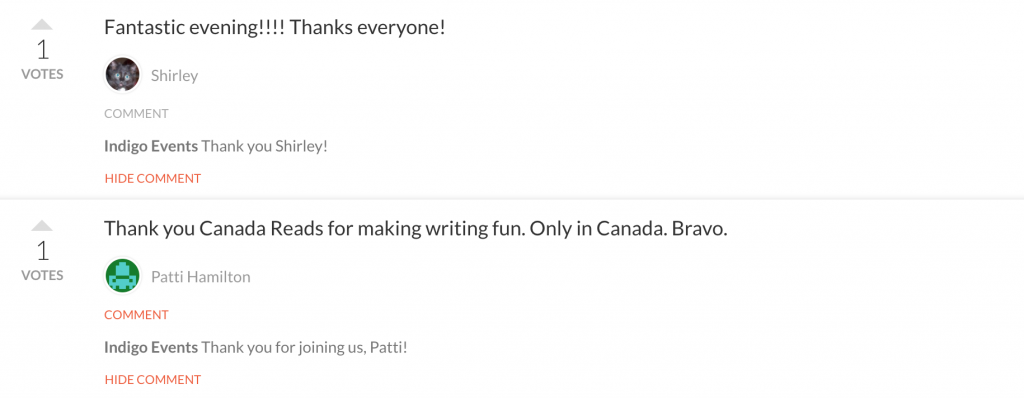
Taken together, these questions indicate a desire for audience members to have more direct access to the authors—to ask them about their writing styles, plots, and if they are working on additional books—and to learn more about Canada Reads programming. In fact, of the twenty-seven questions, none were directed at the panellists: twenty-one were directed at the authors, five were about the Canada Reads programming or event, and one was a question asking for technical help. (That there weren’t more questions asking for help with the system may be a reflection on the success of the event, or on the audience that attends online events, or how adapted everyone has become to digital platforms a year into the COVID-19 pandemic.)
These results may point towards ongoing disapproval of using celebrity panellists in the show—a sentiment we have explored in previous blogs. The 2021 season of Canada Reads took place March 8–11, 2021, and it will be interesting to see if these patterns continue in other online discourse on this year’s debate.
